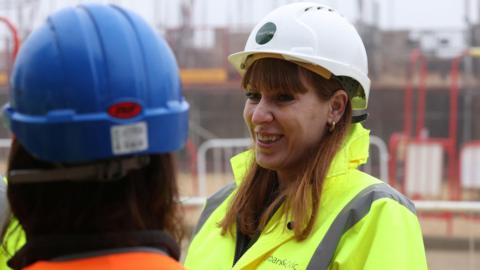Skills shortages have been an issue in the UK for some time, but the gap had been partially plugged in recent decades with workers from the European Union - a recruitment pool which has dried up after freedom of movement ended as a result of Brexit.
The HBF said 40 to 50% of skilled workers had also left the industry following the 2008 financial crash and "restrictions" had made it harder to recruit from overseas.
Mr Thomas said historically the building sector had recruited a significant number of bricklayers from eastern EU countries, admitting that "in hindsight", the UK had been over-reliant on overseas workers but it had been the "norm".
According to the industry's latest census, Romania, India and Poland were the most common countries of origin for construction workers from overseas. More than half of London's construction workforce are EU/EEA nationals.
Last month, the government announced £140m of funding to create 5,000 more construction apprenticeship places per year and established "homebuilding skills hubs" to fast-track training.
A government spokesperson said the skills hubs showed it wanted to "make sure this country takes skilled careers like construction seriously".
But ministers received a blow to its plans from local councils, charged with implementing the new targets in their areas, who said they were "unrealistic" and "impossible to achieve".
The independent think tank Centre for Cities also estimated the housebuilders will fall 388,000 short of the government's 1.5m target.
But both Barratt Redrow and the HBF have welcomed the government plans. The HBF said "a more pro-development policy approach" would enable the industry to "invest in the people and land needed to increase housing supply".
Despite recruitment challenges, Barratt Redrow is planning to build between 16,600 and 17,200 in the next financial year, almost 4,000 more than what Barratt itself forecast, before the merger with Redrow in October.
